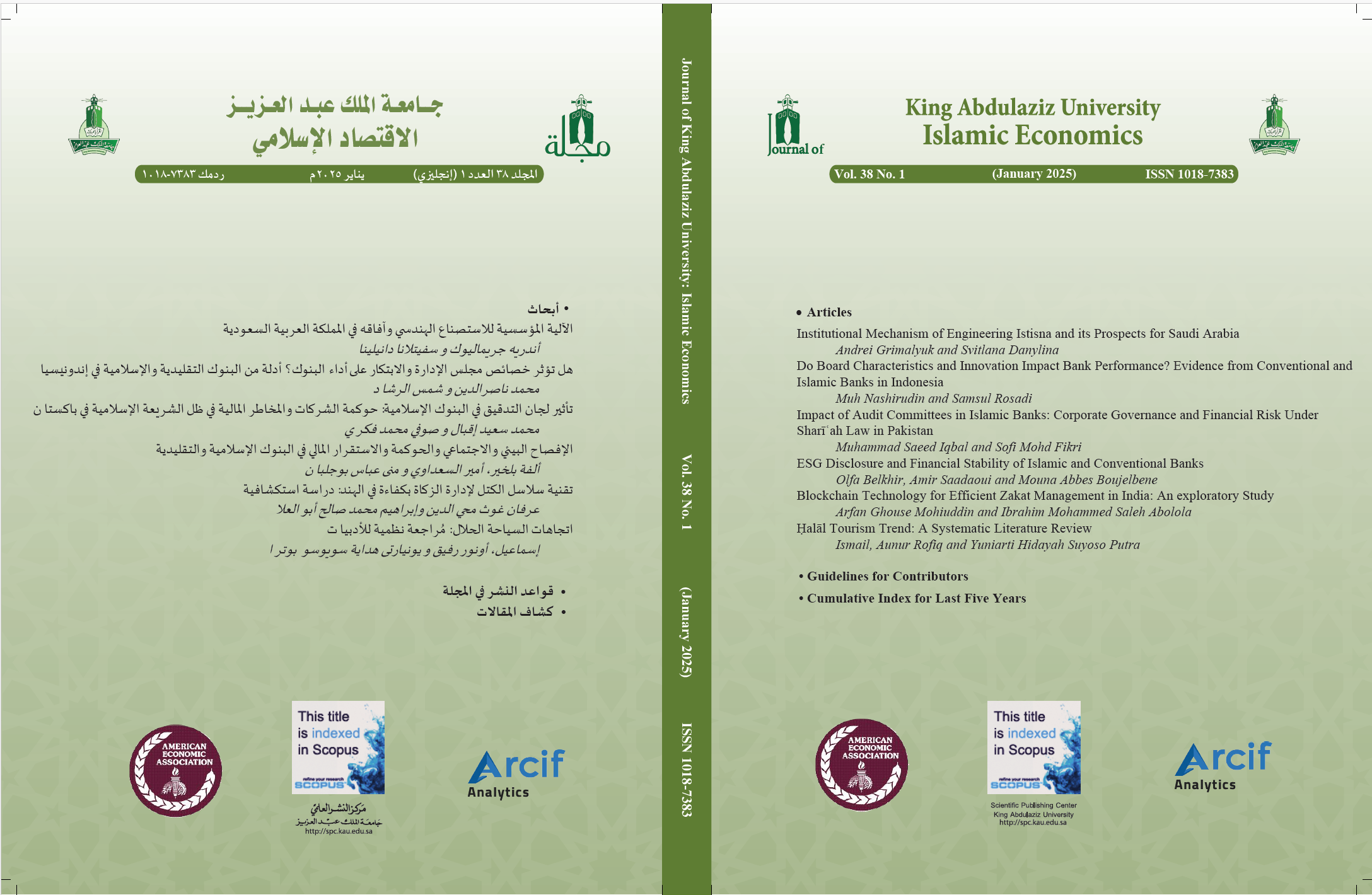Impact of audit committees in Islamic banks: Corporate governance and financial risk under Shariah law in Pakistan
محتوى المقالة الرئيسي
الملخص
To explore the impact of corporate governance especially audit committees on the financial risk of Islamic banks in Pakistan under Sharīʿah law. The study used panel data between (2018-2022) of Islamic banks in Pakistan. To facilitate the data analysis, we employed the fixed effect model in panel data regression. The study highlights that Islamic bank in Pakistan maintain a healthy financial position, with an average NPF of 3.91%, indicating strong risk management. Regression analysis confirms significant negative effects of audit committee size (ADC) and return on assets (ROA) on NPF, with coefficients of -0.199 (p = 0.0052) and - 10.2036 (p = 0.0099), respectively. These findings emphasize the importance of profitability and effective audit committees in reducing financial risks. However, SSB1 and SSB2 show no significant relationships, with p-values of 0.3838 and 0.1045, respectively. The fixed-effect model, validated by the Chow test (p = 0.000), ensures the robustness of the analysis. The major limitation of the research is time and resources and the availability of the quality and quantity of data. We conclude that due to the ultimate need to reduce financial risk, auditors must play an important role in banks, including Islamic banks. Our findings suggest that Islamic banks need to ensure audit committees operate efficiently. An effective system in Islamic banks that enhances accountability and transparency will be in the collective interest of society to enhance financial risk
management. First, to the extent of our knowledge, there is no previous research conducted to examine the effect of the effectiveness of audit committees. Second, our study aims to provide empirical evidence on the effect of audit committee effectiveness on financial risk in Islamic banks.

